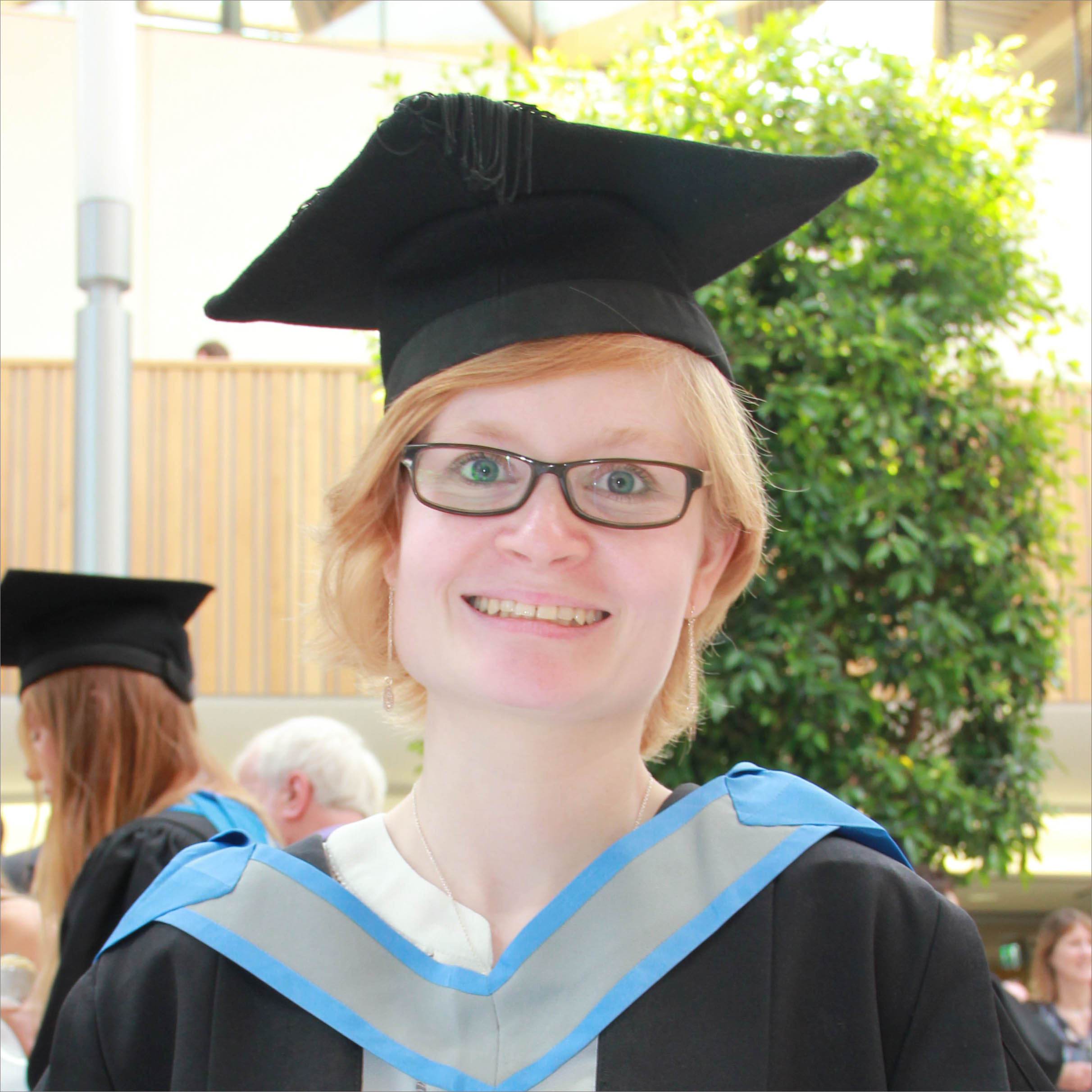
Georgina Lewis
Georgina Lewis
BSc Sociology and Criminology 2016
What did you enjoy about your degree programme?
The freedom to tailor it around my interests and strengths. Even in my first year one of the lecturers gave us the opportunity to develop our own essay title question (with his approval) so right from the beginning I was thinking about what I was interested in exploring and where I wanted to specialise. There was a massive variety in the module choices available for second and third year as well.
The dissertation was definitely the main highlight – I completed fieldwork in Calais refugee camp and conducted research about the volunteer identities and structure in the camp. Whilst this obviously came with its demands, it showed me an insight into the real world as a sociologist. It helped bring my degree to life, to help me feel like maybe my work could one day make a difference to someone. The experiences and memories gained in completing my dissertation will remain with me always.
Tell us about the award you have received. What does this award mean to you?
I have received the Barry Turner Memorial Prize for Best Academic Performance Final Year Sociology Student. Getting this award was a complete surprise and actually means a great deal to me; throughout my degree I have been also living with PTSD (post-traumatic stress disorder) so it's amazing to know that my mental health truly did not speak for my abilities, in the end. There were times where I did not think completing my degree would be possible at all, so to have finished by receiving this award feels pretty incredible.
What has been the highlight of your time at Exeter?
The highlight was working as President of ExTunes in 2013-4, ExTunes being the umbrella extra-curricular music organisation on campus. At the time the Music Office still existed and the support I received from them enabled me to develop professionally and personally at a far more profound level than anywhere else in my degree experience.
I organised an event called War Song which was a large-scale music event marking the centenary of the First World War. It involved about half of our music societies and watching so many musicians, from so many genres, work together to achieve something so powerful was one of the most moving experiences during my time at Exeter.
What will you miss the most about University?
Honestly, conducting research. I hope to complete postgraduate studies in a few years, but in the last two years especially I really became passionate about the research I was doing and came to believe more in my ideas and what I could do. The staff were always so supportive and encouraging of me exploring my ideas and finding my own strengths and style.
By the end of it I truly felt like I owned my degree and that it had been more than just writing essays and sitting exams. I enjoyed having a question and through research and fieldwork being able to start gathering an answer whilst finding more questions in the process; that was always fascinating to me.
What advice would you give to current and future students?
Don't give up. I started a degree in Psychology in 2011 but had to interrupt my studies in second year due to my mental health. I restarted studies in 2013, but on this new degree programme. I didn't know then if I'd manage to complete this degree either.
But don't think that illness need speak for your right to get a degree. The important thing is you understand your right for support and help, and that there is not any shame in receiving that. I had the support of a wellbeing mentor at the University as well as therapy in Exeter and without that support I do not think getting a degree, let alone such a good degree result, would have been possible. My wellbeing mentor in particular helped me balance the strains of a degree alongside the impact of my mental health, and to support me with things like essay extension requests if my mental health was feeling too overwhelming.
I know some people worry about asking for help because they think there is a stigma of special treatment but I never felt that from any students. Ultimately you deserve the same chance as anyone else at getting your degree, and if that means you need a little more support than others then thats nothing to be ashamed of. Just dont suffer in silence.
What are your plans now that you have graduated?
I have been offered a job working with Devon Partnership NHS Trust. I will be working as a support worker in a local forensic mental health hospital, where I really feel the knowledge I gained from my sociology and criminology degree, alongside with my experiences both personally and in Calais, will be very useful. I start that job in August so I am looking forward to starting a new chapter!
In a few years I'd like to complete a Masters but first I'd like to build up my work experience and work out where I'd like to specialise.
